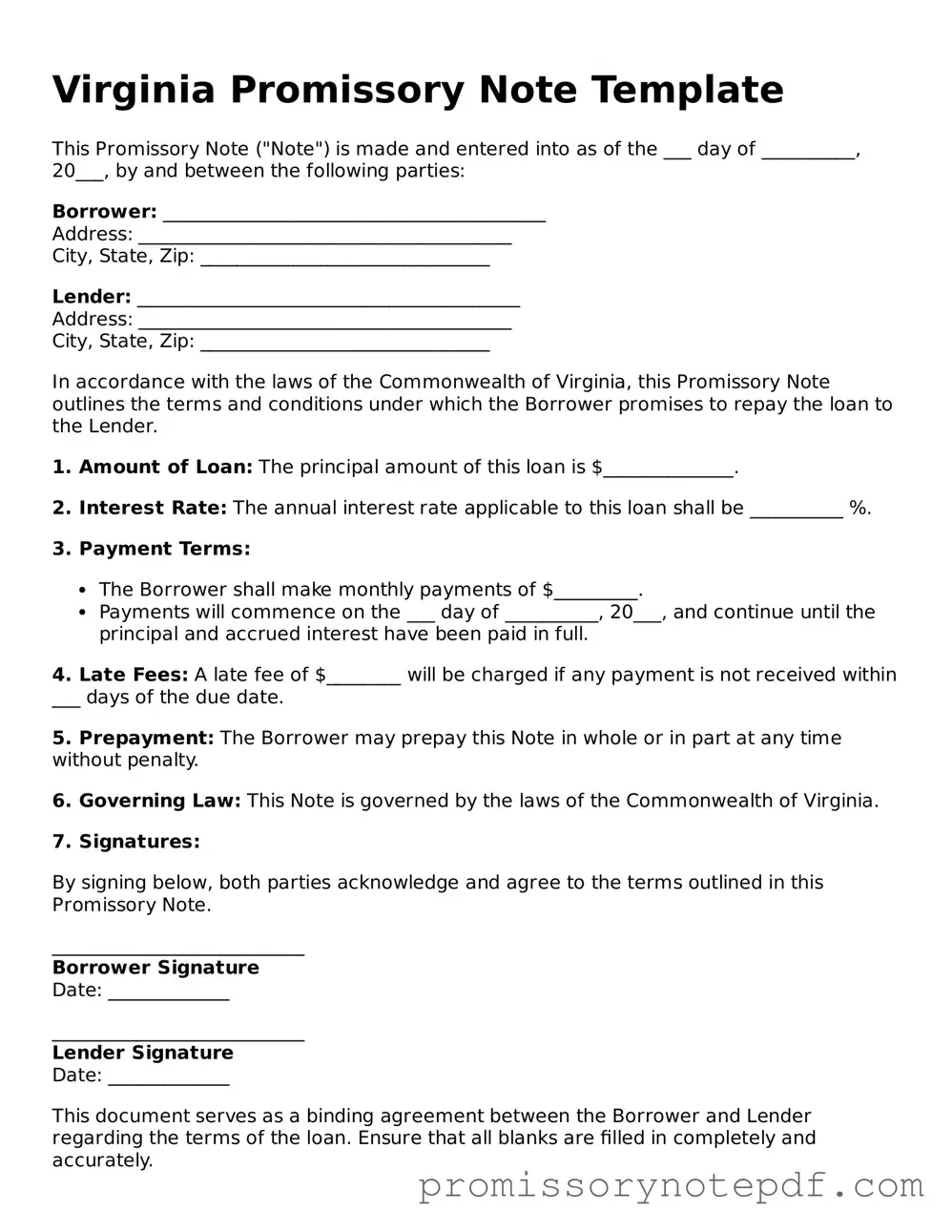The Virginia Promissory Note form shares similarities with a Loan Agreement. Both documents serve as a written record of a loan, detailing the amount borrowed, the interest rate, and the repayment schedule. A Loan Agreement, however, tends to be more comprehensive, often including clauses that address default, collateral, and other conditions of the loan. While a Promissory Note is typically a simpler document focused on the borrower's promise to repay, the Loan Agreement provides a broader framework for the terms and conditions surrounding the loan transaction.
Another document akin to the Virginia Promissory Note is the Secured Promissory Note. Like the standard Promissory Note, this document outlines the borrower's commitment to repay a loan. The key difference lies in the inclusion of collateral in the Secured Promissory Note. This means that if the borrower defaults, the lender has the right to claim the specified asset. This added layer of security makes the Secured Promissory Note a more protective option for lenders compared to its unsecured counterpart.
A third document that resembles the Virginia Promissory Note is the Personal Guarantee. This document is often used in business loans where an individual agrees to be personally liable for the debt of a company. While the Promissory Note focuses on the borrower's obligation to repay, the Personal Guarantee adds an extra layer of accountability by making an individual responsible for the debt if the business fails to pay. Both documents emphasize the importance of repayment, but the Personal Guarantee shifts some of the risk from the lender to the individual guarantor.
Similar to the Virginia Promissory Note is the Installment Agreement. This document outlines a repayment plan where the borrower agrees to repay the loan in regular installments over time. While a Promissory Note can also specify installment payments, the Installment Agreement typically includes more details about each payment, including due dates and amounts. Both documents aim to clarify the repayment process, but the Installment Agreement is more structured in its approach to payment schedules.
The Virginia Promissory Note also bears resemblance to the Mortgage Note. A Mortgage Note is a specific type of Promissory Note that is secured by real property. It includes the borrower's promise to repay the loan used to purchase a home or other real estate. While both documents express a commitment to repay, the Mortgage Note is tied to a specific asset, providing the lender with a legal claim to the property in case of default. This connection to real estate makes the Mortgage Note a critical document in real estate transactions.
Lastly, the Virginia Promissory Note can be compared to the Credit Agreement. This document outlines the terms of a credit facility between a lender and a borrower. While a Promissory Note is often a stand-alone document focused solely on the promise to repay, a Credit Agreement encompasses a broader range of terms, including credit limits, fees, and conditions for borrowing. Both documents are essential in lending situations, but the Credit Agreement is typically more detailed and complex, reflecting the ongoing nature of the credit relationship.
